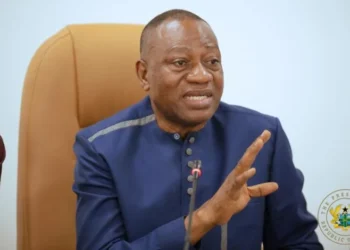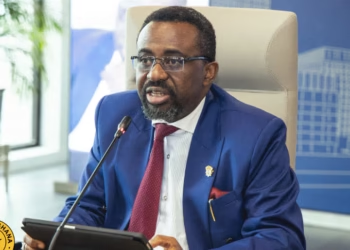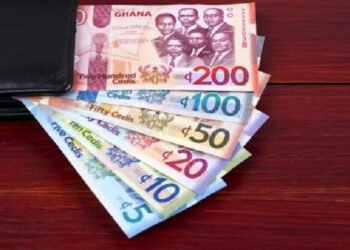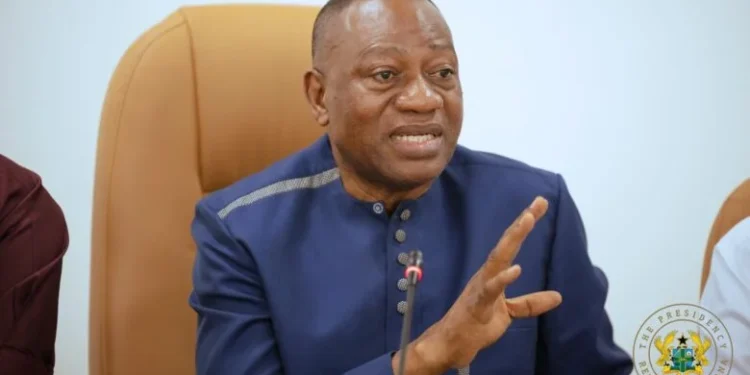Ghana’s headline inflation has persistently hit a downward trend since January 2025, recording a significant 10 consecutive months of decline to further reach a projected record low of 6.5% in November.
The notability of the current inflation records stems from the speed of decline to a single digit. The sustained deflation is rooted in the Bank of Ghana’s tight monetary policy, easing food and non-food inflation, the government’s fiscal discipline, and the remarkable performance of the Ghana Cedi.
According to IC Research, the expected piercing fall of headline inflation to 6.5% in November emanates from a robust base effect and the consistent Ghana Cedi appreciation. This prediction falls within the Bank of Ghana’s target of 8.0% ± 2.
The Government Statistician, Dr. Alhassan Iddrisu, announced the inflation rate for October to be 8.0%, marking the substantially lowest recorded inflation since June 2021 (7.8%) and a robust disinflationary path. This, the Research firm noted, has reversed a lot of hardship – high prices of goods and services, frustration in the system, business losses, and loss of livelihoods.
“A strong, favorable base effect and recent cedi appreciation will likely drag inflation towards the BoG’s [Bank of Ghana] lower target.
“We expect headline inflation to drop sharply to 6.5% in November 2025 (-150 basis points month-on-month), reflecting a favorable base effect and the cedi’s sharp appreciation, which has reversed recent fuel price pressures.”
IC Research
The firm further revealed that the downward trend of the month-on-month inflation, dating from December 2024, has renewed, yet accompanied by periodic fluctuations in the last half of 2025 alternating between inflationary and deflationary pressures.
According to the reputable research firm, “we [IC Research] believe the month-on-month deflation in June and October [of 2025] reflects the impact of sharp cedi appreciation, while the August [2025] deflation reflects the onset of crop harvest.”
Further Policy Rate Cut
Ahead of the announcement of the Policy rate by the Bank of Ghana’s Monetary Policy Committee (MPC) on November 19, 2025, the IC Research firm has again predicted a further cut due to the macroeconomic wellness of the country.
The firm explains that the persistent drop in the inflation rate, the improving financial system, and the effective management and stability of prices could influence the Bank of Ghana’s decision and send signals of a possible policy rate cut.

Though the Policy Rate is a contributing factor in determining the inflation rate, the consistent decline in the inflation rate advocates for a further cut in the policy rate. The policy rate determines the money pool from which the various banks lend to businesses and other economic actors.
From the policy rate, the interest rate is determined, while the cost of borrowing by businesses and consumers is established. The Bank of Ghana also uses the policy rate in the Bank’s inflation targeting framework.
The adjustment of the policy rate by the MPC shapes the direction of the economy. The prediction of a further cut in the policy rate will continue to pilot the economy towards growth and stability, improving business activities and performance.
Days to 2026 Budget and Economic Policy Statement
The October 8.0% year-on-year headline consumer price index and the predicted 6.5% rate for November trigger ripple effects in the economy. One of these reference impacts will be on the 2026 Budget and Economic Policy Statement to be read on the floor of Parliament on November 13.
The budget, which is expected to build on the current economic stability and ease the welfare of the Ghanaian people, will also factor in the projections made as this fiscal year draws near to a close. Ghanaians, economists, experts, the IMF, and other international financial institutions express confidence in the upcoming budget reading.

According to IC Research and other researchers and experts, the 2026 Budget will target a 1.5% primary surplus while anticipating a potential risk in revenue and spending to affect the fiscal target.
The 2026 Budget is projected to provide a precise growth path post-IMF Program, chart a clear path to continue the current economic recovery, provide the job creation formula, widen the revenue net, and improve the living conditions of all Ghanaians, including the deprived regions.
The various flagship initiatives’ sustenance is expected to be further clarified in financial and commitment allocations.
These expectations are likely to be incorporated and fulfilled by the budget reading on the back of the recently ended budget hearing by the Ministry of Finance to receive inputs from stakeholders, from the CSOs to the market women.
READ ALSO: SEC Declares War on Online Investment Scammers — Massive Crackdown Looms by 2026























